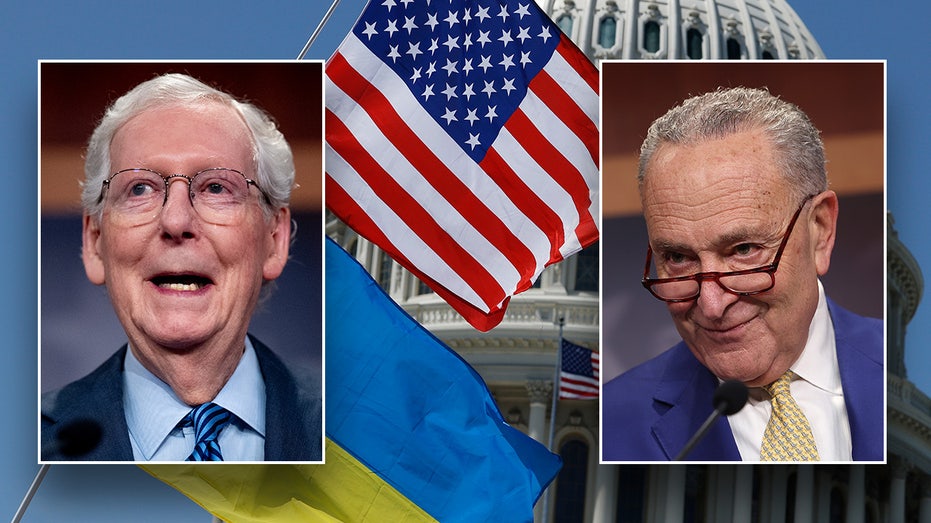A $95 billion package with aid to both Ukraine and Israel passed the Senate on Tuesday night after the House’s various adjustments were approved in the lower chamber over the weekend.
By a vote of 79 to 18, the Senate sent the package to President Biden’s desk, and he is expected to sign off on the additional foreign aid. It notably passed with more votes than the previous Senate-passed version had garnered in February.
The package ultimately included aid to Ukraine, Israel and Taiwan, alongside measures requiring TikTok to divest from Chinese-owned ByteDance and to allow $5 billion in Russian assets held in U.S. banks to be transferred to Ukraine.
BIDEN ADMIN NOTES ‘URGENT’ CONCERN OVER ISRAEL IN GAZA HUMAN RIGHTS REPORT
Biden had initially requested the supplemental foreign aid in October. A different version of the package with funds for Ukraine, Israel and Taiwan passed the Senate in February but was never voted on in the House.
Under the measures, roughly $61 billion is set aside for supporting Ukraine in the war against Russia, about $26 billion is allotted for Israel and humanitarian aid, and nearly $8 billion is provided for the Indo-Pacific and Taiwan.
The Senate cleared the way for quick passage of the bills earlier on Tuesday when it voted in favor of invoking cloture, 81-19.
DEMOCRATS JOIN REPUBLICANS IN CONDEMNING ANTISEMITISM AT COLUMBIA UNIVERSITY
After the cloture motion passed, Senate Majority Leader Chuck Schumer, D-N.Y., celebrated, telling senators in floor remarks, “In a resounding bipartisan vote, the relentless work of six long months has paid off: Congress is sending the supplemental to President Biden’s desk.”
“This is an important day for America and a very important day for freedom-loving countries around the world,” Senate Minority Leader Mitch McConnell, R-Ky., remarked to reporters following the vote to invoke cloture.
GOP LAWMAKERS DEMAND BIDEN ADMIN PROSECUTE ‘PRO-TERRORIST MOBS,’ HOLD SCHOOLS ACCOUNTABLE
Prior to the cloture vote, a significant number of senators sought a motion to table an amendment tree, which blocks other amendments from being considered in regular order. The motion to table was a close vote, with 48 supporting it and 50 voting against, allowing the amendment tree to stand.
Sen. Bernie Sanders, I-Vt., released a statement following the motion’s failure, noting that it meant his amendment wouldn’t be considered. He wanted to see votes on his two amendments to the package, which would have ended unconditional aid to Israel and restored funding to the United Nations Relief and Works Agency (UNRWA).
“Polls show that a majority of Americans, and a very strong majority of Democrats, want to end U.S. taxpayer support for Netanyahu’s war against the Palestinian people,” Sanders said in a statement. “It is a dark day for democracy when the Senate will not even allow a vote on that issue.”
A number of Republican lawmakers also wanted votes on their respective amendments, including Sen. Mike Lee, R-Utah, who proposed an amendment to require repayment of the foreign aid loan to Ukraine, in order to make it “real.”
If any amendments were passed in the Senate, the bill would be sent back to the House for its consideration once again.























